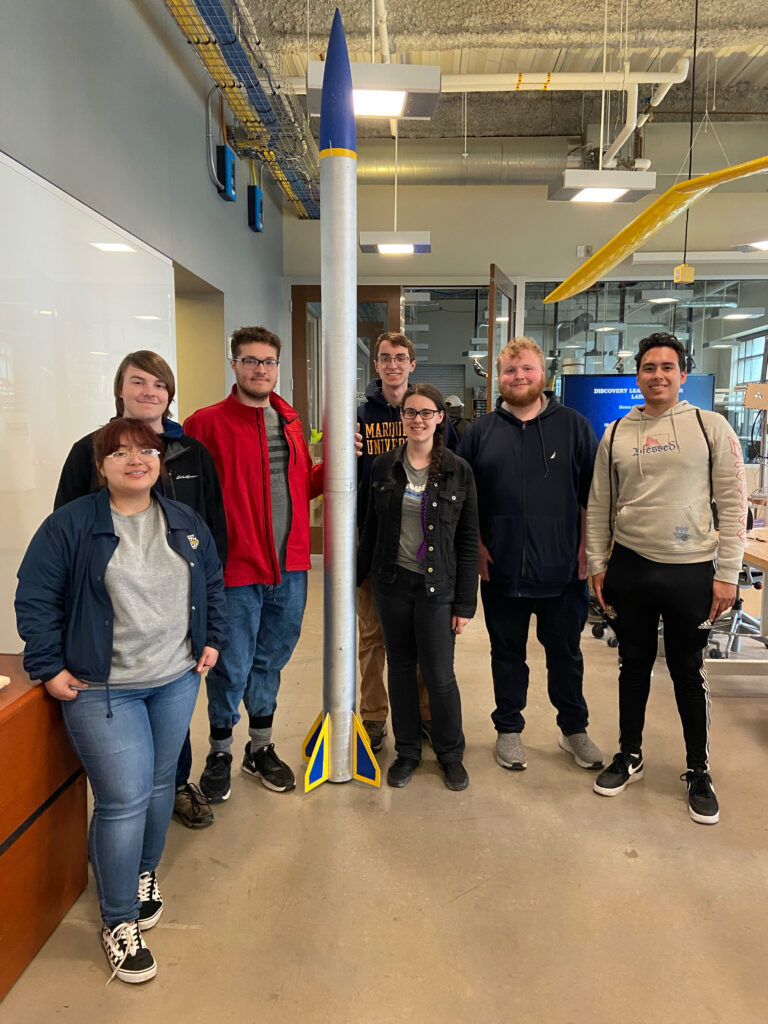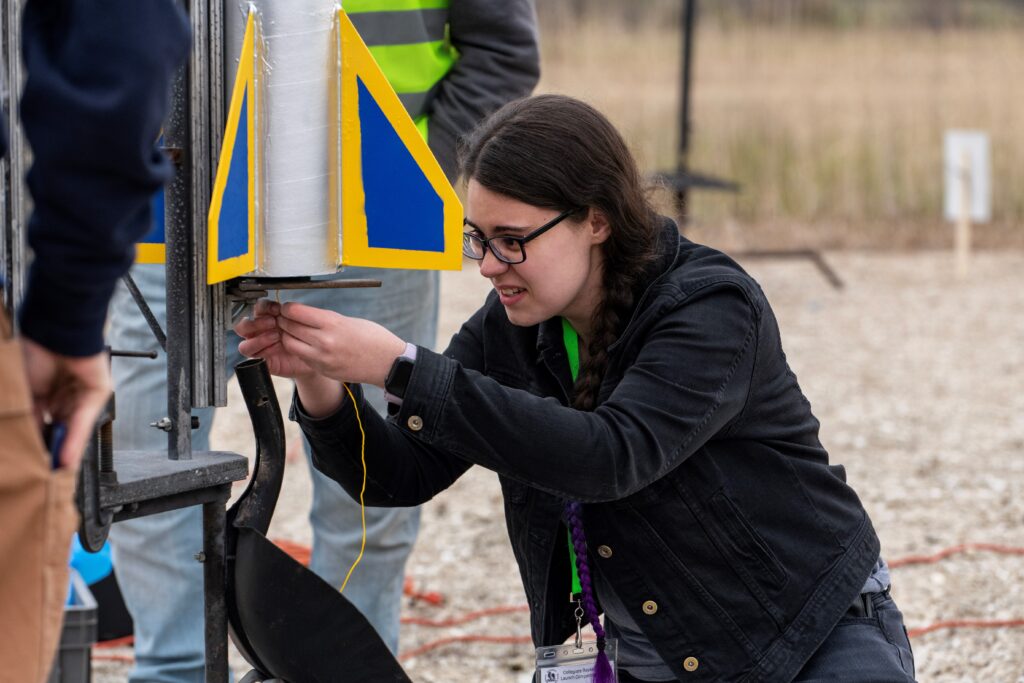
Marquette Rocketry, a student organization out of Marquette’s Opus College of Engineering, is soaring to new heights in just its third year of existence. In June 2023, the organization was named Mission Grand Champion in the Wisconsin Space Grant Consortium’s 2023 Collegiate Rocket Launch.
The competition tasked eight teams from Wisconsin colleges and universities to build a rocket that would carry a payload, fly to a target altitude between 2,400 and 3,000 feet, eject the payload, and take a photo of its landing site when it reached the ground. In addition to the successful design, construction and flight of its rocket, the team was also required to deliver several reports and presentations to communicate their work, document the process and demonstrate attention to safety.
On launch day, Marquette’s rocket soared to 2,583 feet (130 feet shy of the height of the world’s tallest building in Dubai, the Burj Khalifa), directly within the competition’s target range. The payload —consisting of a plastic ball with an enclosed camera under a parachute — was successfully ejected during flight and then recovered by the team nearby.
Marquette’s successful launch was months in the making, as the team of 10 Marquette students kicked off their work in fall 2022 when the competition parameters were announced. For Nicole Schilder, Eng ’24, team lead for the competition, the challenge was more than just rocket science — it was also teaching rocket science.

“It was challenging, as many of the team members had no prior rocketry experience and the motors allowed for this competition were quite large. We actually started by teaching everyone how to build small rockets so they could learn the basic principles and taught them how to use rocketry simulation software,” said Schilder. “After learning those things, they were ready to start contributing their design ideas and help build the rocket and payload.”
The organization met regularly in the Discover Learning Labs in Engineering Hall, eventually crafting their final rocket to be over 10 feet tall.
Commanding a rocket that can climb half a mile above Wisconsin understandably requires a few more regulations than your average store-bought model. Due to the amount of propellant used, students need a special certification to fly their rocket, and can only launch from sites with an active waiver from the Federal Aviation Administration.

As winners of the competition, Marquette Rocketry earned a VIP tour of Sierra Space, a commercial space company with a facility in Madison, and a $3,000 prize that will support the organization for future projects and even larger competitions. The organization was also invited to present a poster at the 33rd Annual Wisconsin Space Conference.
“While I hope the team can continue to do more technical work and place well in competitions, what I really want is to help spark people’s interest in aerospace,” said Schilder, who is currently an engineering intern with SpaceX. “It’s much easier to persevere through difficult classes and exams when there’s something inspiring you, and I can’t think of many things more inspiring than humanity’s future missions to the moon, Mars and beyond. I hope this organization can be a place where people can be themselves, make new friends, create projects they’re proud of, and get excited about the future!”
Marquette Rocketry’s success is made possible through the generosity of Wisconsin Space Grant Consortium for hosting these competitions. Stay tuned for updates on Marquette Rocketry’s future launches.


